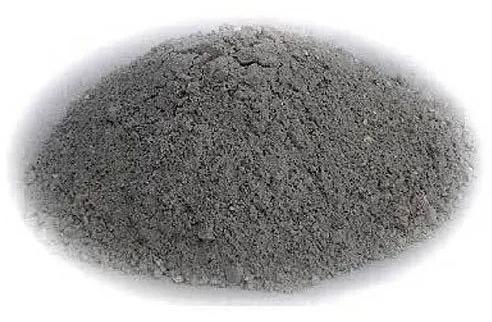Does Refractory Cement Crack?
Sep 13, 2024Refractory cement is a crucial material used in high-temperature industries such as steel production, kilns, and furnaces. Its ability to withstand extreme heat and mechanical stress makes it an essential component in industrial construction. However, a common question that arises is: Does refractory cement crack? The answer depends on several factors, including installation, usage, and maintenance.
In this article, we will explore the conditions that can lead to cracking, how to prevent it, and why refractory cement remains one of the strongest and most reliable materials for high-temperature applications.

Before diving into the topic of cracking, it’s important to understand what refractory cement is. Unlike ordinary cement, refractory cement is specifically designed to withstand extreme temperatures, often up to 1600°C (2912°F) or more. Composed of materials like alumina, silica, and calcium aluminate, it is used in the construction of furnaces, kilns, incinerators, and other structures exposed to high heat.
Refractory cement has thermal stability, chemical resistance, and mechanical strength, making it an ideal material for lining structures that must endure both high temperatures and physical wear.
While refractory cement is engineered to be durable, under certain conditions, it can crack. Here are some common reasons why this might happen:
Thermal Expansion and Contraction
Thermal cycling—the rapid heating and cooling of a material—can place stress on refractory cement. When exposed to sudden temperature changes, the cement expands and contracts. If the structure is not designed to accommodate this movement, cracking may occur. This is known as thermal shock, and it’s one of the most common reasons for cracks in refractory cement.
Improper Installation
Installation plays a major role in the longevity of refractory cement. Incorrect mixing ratios, inconsistent drying times, or poor application can lead to structural weaknesses that cause the cement to crack. It is critical to follow the manufacturer’s guidelines to ensure proper installation and minimize the risk of cracks.
Mechanical Stress
In some high-temperature environments, refractory cement can be subjected to mechanical loads or impacts that exceed its designed limits. For example, furnaces and kilns may experience movement or pressure from equipment, causing the cement to crack if it is not properly reinforced or installed.
Moisture Exposure
If water is present in the environment before the cement has completely cured, it can weaken the structure and lead to cracking. Moisture penetration can cause thermal stresses when the cement is later exposed to high heat, as the trapped moisture vaporizes and expands within the material.
Preventing cracks in refractory cement requires careful attention to installation, application, and maintenance. Here are some strategies to help avoid issues:
Despite the potential for cracking under certain conditions, refractory cement is still one of the most reliable materials for high-temperature industrial applications. When properly installed and maintained, it offers unmatched durability, thermal resistance, and longevity.
The cement’s chemical stability and resistance to high temperatures make it a preferred choice for furnaces, kilns, boilers, and other equipment exposed to extreme heat. Cracking can often be avoided with proper care and attention to installation procedures.
While refractory cement can crack under certain conditions—such as rapid temperature changes, improper installation, or mechanical stress—these issues can be mitigated with careful installation and usage. By following best practices, including gradual heating, proper mixing, and the use of expansion joints, you can ensure the cement remains strong and functional for years to come.
For more information on high-quality refractory cement, visit our product page and discover the durable solutions we offer for industrial needs.
Product parameters:
| Brand | 708A | 708S | 708W | 708B | 708C | 708K |
| Refractory cement Types | Usual range | Specification limit | Usual range | Specification limit | Usual range | Specification limit |
| SiO2, % | 7.8-8.3 | ≤9.0 | 7.0-7.5 | ≤8.0 | 5.0-5.5 | ≤6.0 |
| Al203, % | 50.0-51.0 | ≥50.0 | 50.5-51.5 | ≥50.0 | 53.5-54.5 | ≥53.0 |
| Fe203, % | 1.5-2.5 | ≤3.0 | 1.5-2.5 | ≤3.0 | 1.5-2.0 | ≤3.0 |
| R20, % | - | ≤0.5 | - | ≤0.5 | - | ≤0.5 |
| S-, % | - | ≤0.2 | - | ≤0.2 | - | ≤0.2 |
| CI-, % | - | ≤0.06 | - | ≤0.06 | - | ≤0.06 |
| 325M(%) | - | ≤20 | - | ≤15 | - | ≤8 |
| Specific surface areas, ㎡/kg | - | ≥320 | - | ≥350 | - | ≥380 |
| Setting time, min | ||||||
| Initial setting time IS | 50-120 | ≥30 | 50-120 | ≥30 | 150-210 | ≥150 |
| Final setting time FS | 90-180 | ≤360 | 120-210 | ≤360 | 210-300 | ≤360 |
| Flexural strength, Mpa | ||||||
| 1d | - | ≥5.5 | - | ≥6.5 | - | ≥8.5 |
| 3d | - | ≥6.5 | - | ≥7.5 | - | ≥9.5 |
| Compressive strength, Mpa | ||||||
| 1d | 45-55 | ≥40 | 50-60 | ≥50 | 70-75 | ≥70 |
| 3d | 50-60 | ≥50 | 60-65 | ≥60 | 80-85 | ≥80 |